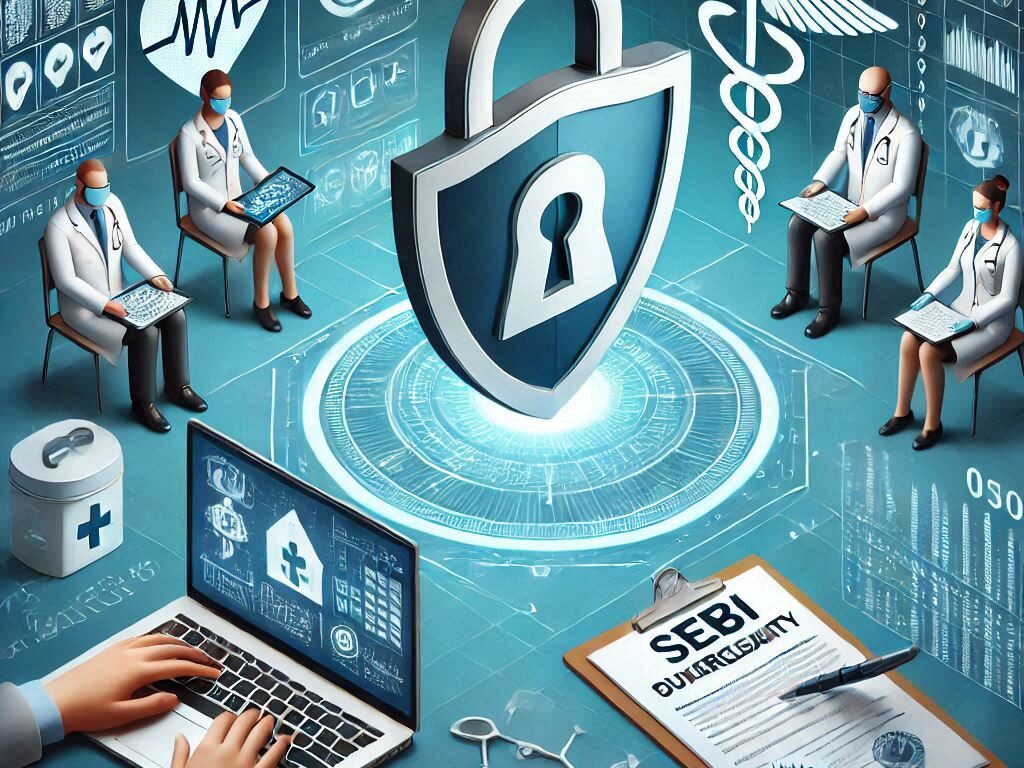
Cyber threats are increasingly sophisticated and prevalent, healthcare organizations must prioritize cybersecurity compliance to protect sensitive patient data and maintain operational integrity.
The Securities and Exchange Board of India (SEBI) has established a Cybersecurity and Cyber Resilience Framework (CSCRF) that mandates compliance for regulated entities, including healthcare providers.
This blog will outline how to effectively implement SEBI cybersecurity compliance in healthcare, ensuring that organizations can safeguard their data while adhering to regulatory standards.
To effectively implement SEBI compliance in healthcare, it is crucial first to understand the objectives and standards outlined in the CSCRF. This framework is designed to enhance cybersecurity among regulated entities by establishing a structured approach to managing cyber risks.
The CSCRF aims to provide a comprehensive approach to cybersecurity for healthcare organizations classified as regulated entities (REs). These organizations must comply with specific requirements set forth by SEBI.
Understanding these key components allows healthcare organizations to develop a clear roadmap for compliance, ensuring they meet regulatory expectations while enhancing their overall security posture.
Implementing SEBI’s cybersecurity compliance guidelines in healthcare requires a structured approach that integrates best practices, technology, and personnel training
Here’s a detailed look at how healthcare organizations can effectively implement the seven key compliance instructions outlined in the Cybersecurity and Cyber Resilience Framework (CSCRF).
To set up an effective SOC, healthcare organizations should first assess their specific needs and determine whether to build an in-house team or partner with a managed security service provider (MSSP). The SOC should include skilled personnel such as security analysts and incident responders who are trained to monitor threats 24/7.
Implementing advanced security information and event management (SIEM) systems can help automate threat detection and response processes related to network security. Regularly updating the SOC’s technology stack is essential to stay ahead of evolving cyber threats in healthcare.
Healthcare organizations should establish a routine for conducting comprehensive risk assessments that include vulnerability management.
This involves identifying critical assets, evaluating potential vulnerabilities through techniques like penetration testing in cyber security, and assessing the impact of various cyber threats.
Utilizing frameworks like NIST or ISO 27001 can guide organizations in performing these assessments systematically while documenting findings that inform future decisions regarding data security.
Developing an effective incident response plan (IRP) involves several steps related directly to maintaining high standards set by some of the best cyber security companies.
Organizations should define clear roles within the Incident Response Team (IRT).
The IRP must outline procedures for identifying, reporting, responding to incidents—including communication protocols—and utilizing tools from leading providers specializing in cyber security services. Conducting tabletop exercises can help test its effectiveness.
To protect sensitive patient data from common vulnerabilities exploited during attacks like those seen with ransomware attacks in hospitals, healthcare organizations should implement robust data encryption protocols for both data at rest and transit using solutions from some of the top cyber security companies.
Regularly scheduled backups are crucial; these backups should be stored offline using cloud solutions while tested frequently against potential breaches involving sensitive information.
Creating a culture of cybersecurity awareness starts with comprehensive training programs for all employees based on insights from some of the best penetration testing companies. Organizations should develop tailored training sessions covering common threats such as phishing attacks alongside safe internet practices recommended by leading experts within this field—ensuring staff remain vigilant against emerging risks identified in the top 10 cyber security threats faced today.
Healthcare organizations must develop a business continuity plan (BCP). This plan should include disaster recovery strategies tailored to their specific operational needs. These needs should be identified through previous audits conducted by recognized penetration testing providers within the sector.
The BCP must ensure alignment with industry best practices. Additionally, it should outline procedures necessary during disruptions that affect critical functions. This includes communication strategies involving patients and stakeholders alike.
Lastly, maintaining compliance with SEBI regulations requires ongoing monitoring and documentation. This should cover all aspects related to established policies and procedures surrounding these practices.
It is essential to ensure adherence not only to SEBI guidelines but also to relevant regulations like HIPAA and GDPR. Regular audits and internal or external assessments should be conducted to identify gaps. When gaps are found, corrective actions must be taken promptly based on the findings.
These findings should be reported back into the management frameworks established beforehand. This approach ensures alignment across all levels involved, facilitating successful progress moving forward.
By implementing SEBI cybersecurity compliance strategies, healthcare organizations can enhance their security posture and protect sensitive patient information.
Prioritizing cybersecurity is essential in today’s digital landscape. This includes leveraging services from the best cyber security companies and conducting Web Application Penetration Testing and penetration testing in cyber security.
Organizations should focus on vulnerability management, robust data security, and awareness of the top 10 cyber security threats.
Collaborating with recognized penetration testing providers and utilizing cloud security solutions will further strengthen defenses and ensure compliance while safeguarding patient data integrity. Let me know if you need any further adjustments!
Cyber security testing services help identify vulnerabilities and enhance security measures. They ensure compliance with regulations like SEBI and HIPAA, ultimately protecting sensitive patient data from breaches and cyber threats.
Select from the top cyber security companies by evaluating their experience, certifications, and service offerings. Focus on those specializing in penetration testing within the healthcare sector to address specific compliance and risk management needs.
Cloud security is vital for protecting sensitive patient data stored in cloud environments. It mitigates risks of data breaches and ensures compliance with regulatory standards, including SEBI, safeguarding patient privacy and organizational integrity.
Engage reputable cyber security testing services to conduct thorough assessments and regular audits.
Collaborating with the best cyber security companies will help identify vulnerabilities and implement necessary controls for SEBI compliance.